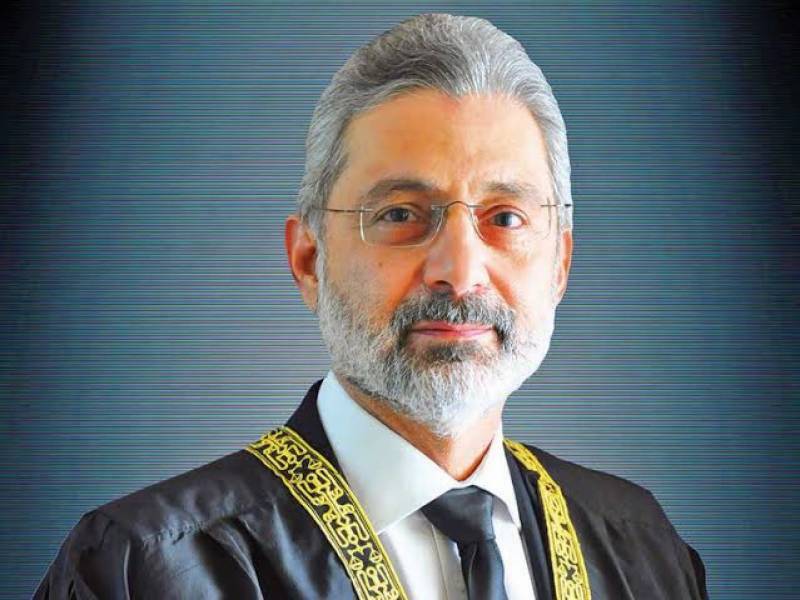Islamabad (Web Desk): The government on Saturday constituted a judicial commission comprising three senior judges tasked with probing the veracity of recent audio leaks and “their impact on the independence of judiciary”.
According to a notification issued by the government, the commission will be headed Justice the Supreme Court's (SC's), senior puisne judge Qazi Faez Isa and comprise Islamabad High Court (IHC) Chief Justice Aamer Farooq and Balochistan High Court (BHC) Chief Justice Naeem Akhtar Afghan.
As per the notification, the commission has been tasked to promptly commence an inquiry and to conclude the investigation within 30 days.
“However, if the commission requires further time, the federal government shall grant it,” the notification added.
Among the multiple audio leaks, the commission will also probe into the veracity of the alleged call between former Punjab chief minister Chaudhry Parvez Elahi and a sitting SC judge as well as another call between CM Elahi and a SC lawyer over the constitution of an apex court bench.
Typically, the government requests the chief justice of Pakistan (CJP) to nominate a judge for the formation of the commission. However, a senior government official believes that there is no requirement in the law to get consent from the CJP.
It was learnt that five audio leaks revolve around the CJP's family. Likewise, the superior bars have filed a complaint against a particular SC judge on account of his audio leak wherein he was talking to a former chief minister.
Earlier in May, the National Assembly passed a motion demanding the formation of a special parliamentary committee to investigate the alleged audio leak of former Chief Justice Saqib Nisar's son.
Since the start of the Top court's suo motu proceedings over holding elections for two provincial assemblies within 90 days, some audio leaks purportedly involving SC judges and their family members have created quite a stir in the country’s political arena.
However, the top court has shown judicial restraint and refrained from initiating any separate proceeding to deal with the issue.


